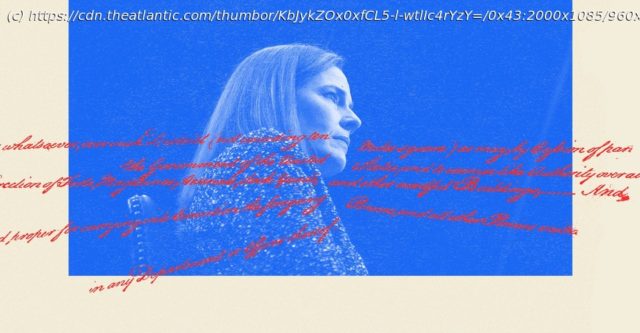The Constitution should be the sturdy vessel of our ideals and aspirations, not a derelict sailing ship locked in the ice of a world far from our own.
During her confirmation hearings, Amy Coney Barrett argued that the judicial philosophy known as “originalism” should guide judges in their interpretation and application of constitutional principles. Most famously associated with the late Justice Antonin Scalia (for whom Judge Barrett clerked), this idea sounds simple and sensible: In determining what the Constitution permits, a judge must first look to the plain meaning of the text, and if that isn’t clear, then apply what was in the minds of the 55 men who wrote it in 1787. Period. Anything else is “judicial lawmaking.” In some cases, interpreting the Constitution with an originalist lens is pretty easy; for example, the Constitution says that the president must be at least 35 years old (“35” means, well,35), that each state has two senators (not three and not one), and that Congress is authorized to establish and support an Army and a Navy. But wait a minute. What about the Air Force? Is it mentioned in the text? Nope. Is there any ambiguity in the text? Again, no. It doesn’t say “armed forces”; it explicitly says “Army” and “Navy.” Did the Framers have in mind the Air Force 115 years before the Wright brothers? Not likely. So is the Air Force unconstitutional, even though it clearly fails both prongs of the “originalist” test? No, a more reasonable and obvious interpretation is that the Framers intended that the country be protected and that the Air Force is a logical extension of that concept, even though it wasn’t contemplated in 1787. This isn’t judicial lawmaking; it’s judges doing what they’re hired to do. And these are the easy cases. How about terms like due process? What does due mean? Is a process that locks you up for life without access to a lawyer “due”? How about an “unreasonable” search and seizure? Is wiretapping “unreasonable”? (We wonder what the Framers thought about wiretapping or cyber theft.) Does “freedom of speech” apply to corporations, which didn’t exist in their modern form in 1787? To put it bluntly, the whole premise of originalism is nonsense in that it pretends to make the work of the Supreme Court look straightforward and mechanical, like “calling balls and strikes,” in Justice John Roberts’s famous phase.
Домой
United States
USA — Science Amy Coney Barrett’s Judicial Philosophy Doesn’t Hold Up to Scrutiny






